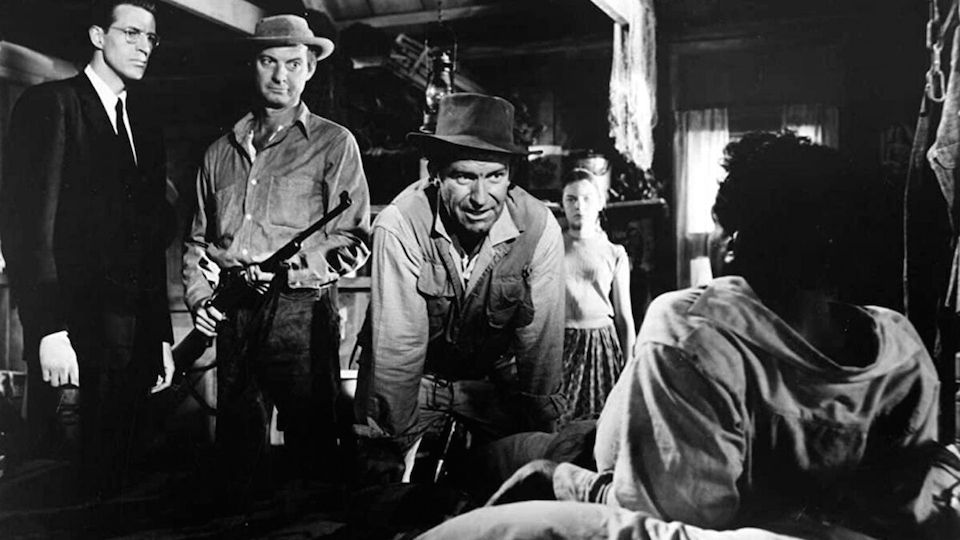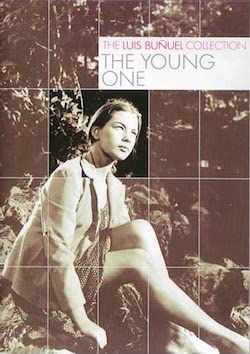
The Young One (Mexico-USA, 1960) 95 min B&W DIR: Luis Buñuel. SCR: Hugo Butler, Luis Buñuel; based on Peter Matthiessen’s short story, “Travellin Man”. PROD: George P. Werker. DOP: Gabriel Figueroa. MUSIC: Chucho Zarzosa. CAST: Zachary Scott, Key Meersman, Bernie Hamilton, Claudio Brook, Graham Denton. (Producciones Olmeca)

Buñuel’s second and last English-language picture is far better than its reputation: although rather plodding, it is far from uninteresting. (The director was also quite fond of the film.) On a small, unnamed island, Mr. Miller (Scott, once again playing a heel) lives with a young girl Ewie (Meersman), almost but not quite on the brink of maturity, and her handyman father. The father is dead at the film’s beginning, thus Miller becomes the perverse father figure. It is revealed that he is a pedophile, as he spends more than a few nights having non-consensual sex with Ewie. His home is violated by the presence of Travers, a black fugitive (Hamilton), who allegedly raped a white woman. Based on Peter Matthiessen’s short story, Travellin Man, this is another Buñuel film in which people’s sickly desires get frustrated by the most unexpected of sequences. The drama forms an apex when Miller is visited by a priest (Brook) and a gun-toting bigot named Jackson (Denton). Both get wise to Miller’s pedophilia, and each have a different reaction to the fugitive that Miller is unknowingly harbouring.
The Young One unfolds like a play, with characters in an isolated location taking turns in empowering the others. For a good stretch of time, Travers is ordering Miller around at gunpoint to help him build a boat to escape from the impending lynch mob. The question of morals is raised when the bigoted Miller is convinced without reservation that Travers is guilty simply because he is black, however Miller is blind to his own immoral behaviour towards the girl. This powerful, literate little film ends on an ambiguous note which may disappoint some. Because this has the most semblance of a commercial film than any other of Buñuel’s pictures (especially because it features Hollywood actors), one duly expects a pat wrap-up akin to any studio effort. Alas, Buñuel is once again sparing no punches. The priest takes the girl on a boat to civilization, where she will be cared far by a far less dysfunctional family. However, Travers has a violent struggle with Jackson, and does not kill him, thus giving the mob another reason to lynch him. With the help of Miller, Travers leaves in a separate boat, and not with the the priest who swears to defend him (the latter knows the character of the accuser, who thus is lying about the rape), yet he escapes to an uncertain fate. However, it seems that this story of morality is more about Miller than anyone else. All the other characters serve for him to recognize, thereby question, his own hypocritical ideas of right and wrong. His allowing Ewie to the mainland (which will certainly seal his fate) and Travers’ escape are his acts of penance.
This film was made available on R1 DVD by Lions Gate, in a double-disk set, shared with El Gran Casino, from the beginning of his “surrealist for hire” period. After The Young One, Buñuel went to Spain to make Viridiana, which began his career renaissance, with an unbroken streak of acclaimed works for his final 16 years of filmmaking.
